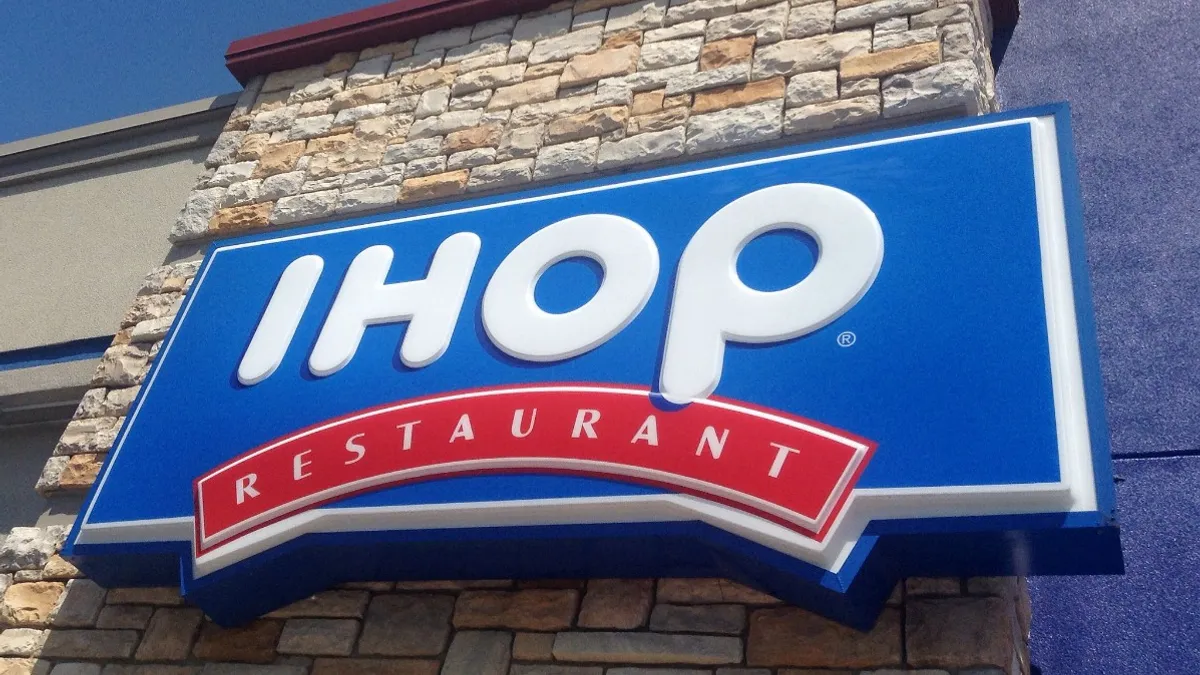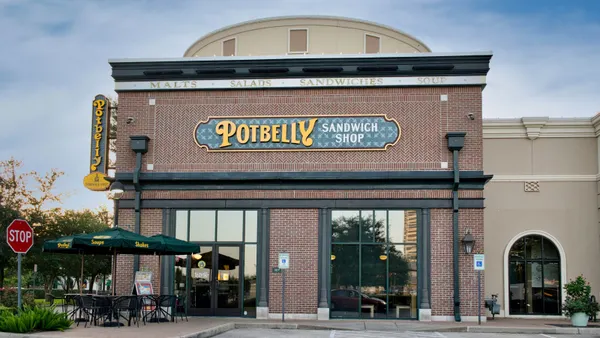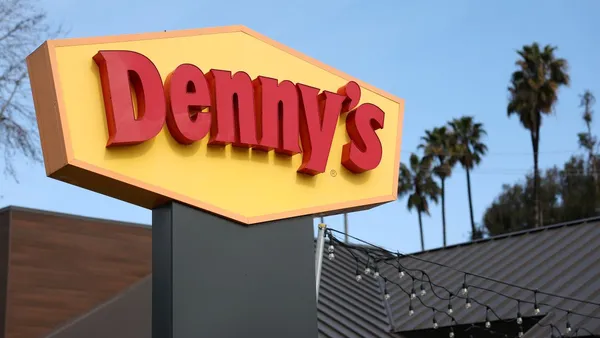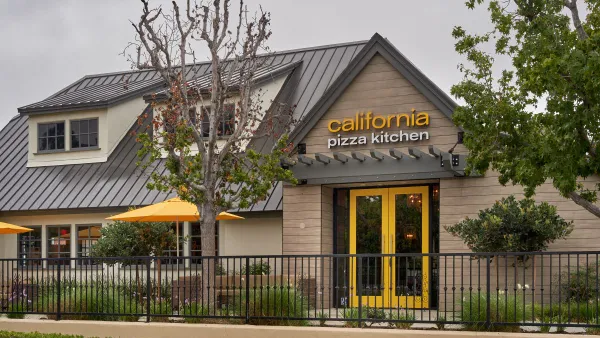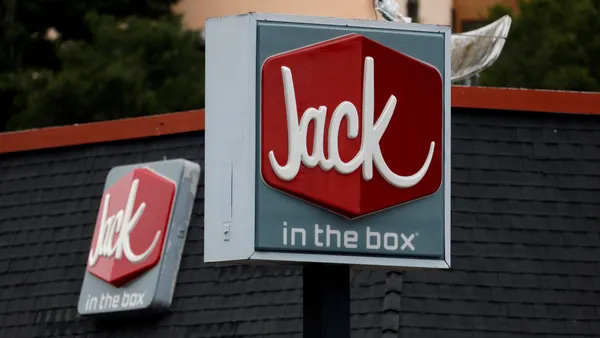Dive Brief:
- JCP Investment Partnership has proposed in Dine Brands’ 2020 Proxy Statement that the board of directors engage with an investment banking firm to spin off the company’s IHOP business into a separate traded public company, according to an SEC filing.
- The stockholder believes that a standalone IHOP would, “be valued and classified as a growth company, which would allow IHOP to trade at a materially higher multiple than the Company currently trades. … Further, a spin-off of IHOP would be similar to actions taken by a number of major restaurant companies over the last decade, including Brinker International’s sale of On the Border and Darden Restaurants’ sale of Red Lobster. Notably, both companies have experienced significant share price appreciation since such dispositions."
- Dine’s board of directors recommended its shareholders vote against this proposal, saying that a spin-off would not be in the best interests of the company and its shareholders and that the board “strongly believes that it should be free to evaluate and pursue the strategies and opportunities that have the greatest potential to maximize stockholder value. In contrast, the proposal requests the Board to engage an investment banking firm solely to effectuate a spin-off without accounting for whether another strategy would be likely to create more value.”
Dive Insight:
Dine Brands is the latest casual dining chain to experience investor pressure. Last year, an investor wanted Bloomin’ Brands to consider a sale or spinoff of its brands while Red Robin battled its own activist investor only to resolve the conflict in late March. As the novel coronavirus continues to deeply impact casual brands, which have already been struggling with declining traffic, significant sales declines will only make it more difficult.
IHOP was originally a solo company until it acquired Applebee’s in 2007. Applebee’s was a drag on Dine Brand’s sales last year, declining 2.5% while IHOP grew 1.1%, but Dine Brands has been pushing several strategies to improve traffic, including boosting its catering platform at both brands, expanding delivery and highlighting value through LTOs. Executives also told shareholders during a February earnings call that it had removed a poor performing franchisee from its system during Q4 2019 and is in a healthier financial position going forward and would consider expansion going forward.
While its strategies are up in the air due to the impact of coronavirus, the company had a clear path to improve operations, so the push for a spinoff could be a little premature. But casual dining chains can expect additional scrutiny as they grapple with a huge drop-off in sales.
Dine Brands hasn’t submitted any preliminary Q1 financial statements, but competitors’ initial Q1 estimates reveal a dramatic impact. The Cheesecake Factory was on the path to growth in Q1 through February with a 3% uptick in comp sales only to fall 46% during March. The company expects quarter comp sales to be down 13%. While Dine Brands already had a robust off-premise channel for its two brands, it’s likely to show similar results with sales declining sharply in March.



